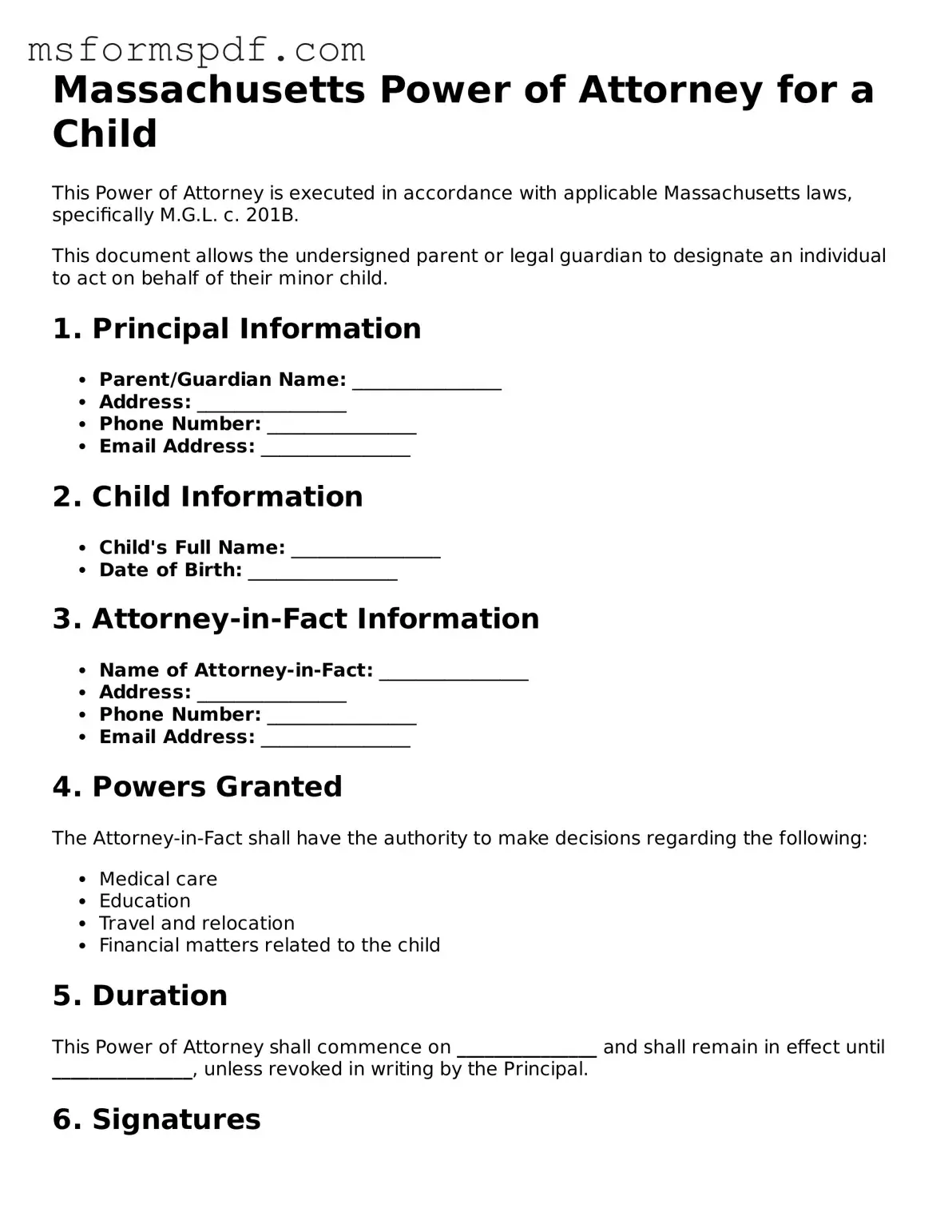Blank Massachusetts Power of Attorney for a Child Document
The Massachusetts Power of Attorney for a Child form allows a parent or guardian to designate another adult to make decisions on behalf of their child. This legal document is essential for ensuring that a trusted individual can act in the child's best interest when the parent is unavailable. Understanding how to properly use this form can provide peace of mind for families in various situations.
Launch Editor Now

Blank Massachusetts Power of Attorney for a Child Document
Launch Editor Now

Launch Editor Now
or
➤ Power of Attorney for a Child PDF Form
Just a moment — finish the form
Fill out Power of Attorney for a Child digitally — no scanning, no printing.